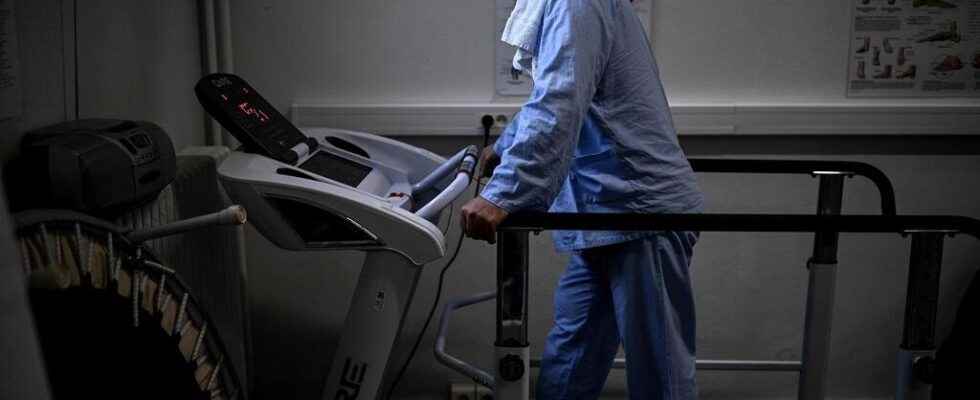The International Observatory of Prisons (OIP) publishes, Wednesday, July 6, a report on access to specialized care in French prisons, excluding psychiatry. A little explored subject. Prisoners are most often damaged people with a degraded state of health compared to the general population and incarceration itself promotes the onset of many pathologies.
Lack of medical personnel, lack of suitable premises, security logic that undermines medical care and monitoring… In its report, published this Wednesday, the International Observatory of Prisons (OIP) warns of the lack of care in prison which often leads to the deprivation of prisoners of their right to health.
Often undignified medical extraction conditions
Mani, 35, is serving a long sentence. Imprisoned for seven years, he suffers from a skin disease that generates abscesses concentrated on the genitals. For lack of care, he must wear diapers. He also underwent major back surgery. His sister Nora testifies: I am sometimes led, like last week, to call the detention center to bang my fist on the table a little so that a doctor deigns to come and see him. That is, he ended up lying on the floor on a completely collapsed mattressshe says. It’s absurd to come to this. »
► Also to listen: Prison overcrowding, a French scourge
Mani just needs a decent mattress. ” Most of the time, on medical certificate, the equipment can be granted to the person who requests it. But the headteacher can oppose it for security reasonsexplains Pauline Petitot, of the International Observatory of Prisons (OIP). It turns out that he has the status of a particularly flagged prisoner. And so, it is this status that the headteacher invoked. Mani did not get a new mattress.
Without being able to consult a specialist in prison, a prisoner should be able to seek treatment outside. But the conditions of escorted extractions are often unworthy. Most often, detainees are handcuffed, shackled, shackled at the feet or around the waist. “ This leads people to give up care, a fortiori when these same obstacles are maintained during the consultation and when, in addition, the supervisor remains during the consultation, underlines Charline Becker of the OIP. We understand that in these conditions, especially for intimate consultations, people also often refuse. »
Too long delays
The other downside is the delays in obtaining appointments: several months – or even never – for the most requested specialties (dental care, physiotherapy, cardiology, ophthalmology), notes the report, which is not interested only to physical (and not psychiatric) care.
“ Me, what struck me was the proportion that small pathologies can take because of the lack of means and the lack of caregivers, notes Odile Macchi, sociologist at the OIP, co-author of the report. Dental or physio problems that suddenly arise. We have several cases of people who have a dental abscess at some point and who bang their heads against the walls so much it hurts, who cannot have access to an appointment and who are given painkillers. This waiting time is also aggravated by communication problems (…) I have the impression that at the same time, everything takes on a much larger proportion because there is a lot of uncertainty and a lot of sometimes misunderstanding of the prison staff who act as the interface. »
Since 1994, the right to be treated for a detainee is nevertheless enshrined in law.
►Also listen : Prisons: forgotten in the fight against Covid-19 (March 18, 2021)
